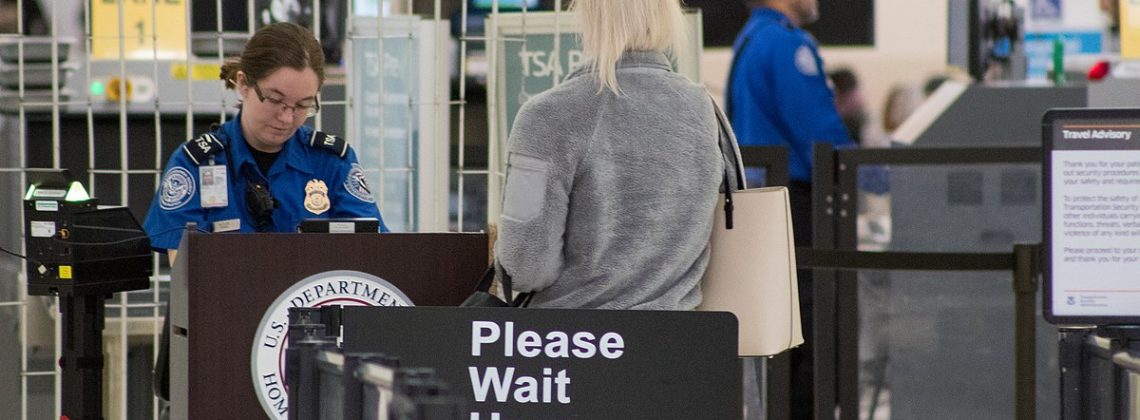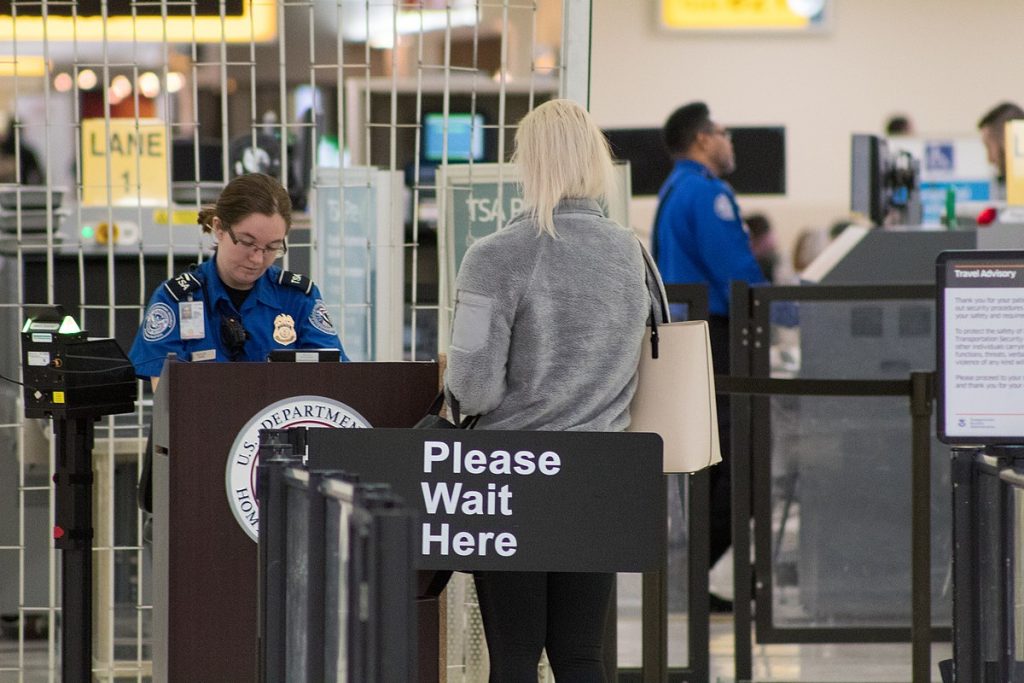

Braving longer lines for the common good
Airlines expect packed planes this summer. Since 2020, Covid has inhibited our comings and goings. But inhibitions and mask mandates have fallen. Gas prices make road trips less attractive. People have places to go.
Airplanes carry freight symbolic as well as literal. If flight bends easily to metaphors of freedom, Americans have made it symbolize democracy too. The people want to fly. At first, air travel was a luxury good. But the 1980s brought it within the grasp of grandma, the kids coming to visit her, the man on the street, and most characters in between. A few years ago it was fashionable to complain about the democratization of air travel—not in so many words, of course. Griping about cramped seats and charges for suitcases and snacks encodes nostalgia for days when only the nicer sort boarded aircraft and other kinds of people took buses. Air travel is for everyone now. That may not be a good thing for the environment, but it is right that the skies’ limits are not imposed mostly by wealth.
Busy airports mean long security lines. No one loves these long waits. The TSA is prone to foibles and inefficiencies. But if the TSA decrees that all who go to the air in planes must show evidence that they mean no harm to others by the trip, we all partake of the inconvenience for the sake of the common weal.
Cleary, though, some of us do not.
CLEAR, the airport screening service that speeds its members through, threatens the good citizenship flight can encourage.
CLEAR is a company promising efficient identity confirmation at over forty U.S. airports and a dozen-odd stadiums. Caryn Seidman-Becker and Ken Cornick built CLEAR from an earlier company, Verified Identity Pass, using software to hasten biometric screening. Members who pay for CLEAR present relevant body parts at kiosks, which check against the data held on file for the user’s eyes, face, or fingerprint. Once cleared, passengers are escorted to TSA screening. Signing up for their service enables travelers’ “safe journeys using your identity.” “We transform your eyes and face into a touchless ID,” CLEAR boasts, “allowing you to quickly and securely confirm your identity—unlocking frictionless experiences across the physical and digital world.”
That promise should set off many alarms. It may be too late for cautions about giving up personal data—no one really has privacy anymore—but casual collection of biometrics should still raise worry. “You’re the perfect person to verify your identity,” CLEAR assures. CLEAR appeals confuse identity with security, and possession of identifying features with the safekeeping of them. After all, the point of TSA screening is not to dispute your sense of self but to ascertain whether you might be a danger to someone else. Transforming my face into something usable for or against me is more than I am willing to pay to avoid germs.
Payment, though, is the particular problem of CLEAR as it appears in the flow of airport foot-traffic. Uniformed CLEAR agents stand ready to walk cleared members around a snaking queue. CLEAR is not a substitute for the TSA checkpoint. Members still need to show documents to a government agent. But CLEAR is a substitute for the line. Its users aren’t paying to skip security. They are paying to skip the line.
CLEAR may seem like another version of the route some travelers already take to shorter lines: TSA PreCheck. Travel-advice writers often suggest signing up for both services, a pairing that implies equivalency. But the two services do very different things. PreCheck is public. CLEAR is private. CLEAR costs $189 annually, though fees can be reduced in partnership with American Express and frequent-flyer collaborations. PreCheck costs $85 for five years. PreCheck users invest mostly effort in advance in order to save time at a later point standing in line.
Passengers who divert themselves into the PreCheck lane don’t raise ire among others. Observing that shorter line may make a traveler fault herself for not planning in advance. But CLEAR makes travelers fault other people—and rightly so. What offends about CLEAR is its conspicuous show of purchased privilege. CLEAR members get escorted by uniformed personnel past all the others waiting. Like butlers or footmen, the blue-jacketed agents shield clients from inconvenience and from the resentful stares of those whom they butt in front. (Maybe if CLEAR could find a way to process its members far from the line of sight of the rest who wait, we wouldn’t know to object.) CLEAR makes clear which passengers have bought their way ahead.
To be sure, flying already sorts travelers at many points, many of these by money. Entering the airport itself takes money. Even cheap flights are beyond the means of many. At top brackets, private planes allow elites to skip the airport experience altogether. Airlines host lush lounges for frequent fliers. Airlines let passengers sort themselves literally by class. Economy passengers envy wide seats and fancy drinks in business or first-class sections. Still, ticket prices do not offend as much as they might, with their confusing, seemingly arbitrary pricing. Actual costs of plane tickets are obscured so that the passenger in 9B has no idea whether 9A paid more or less.
Most status-sorted amenities come after security gates, though. CLEAR constructs a fork in the road right at the front. It’s a bad place to make bids to self-interest because the screening line can contribute to something positive—and not just in terms of safety. Airport security is inefficient and imperfect. Even if taking off shoes and placing laptops in bins cannot guarantee our safety, it does build a kind of fellow feeling. The wait itself brings chances to demonstrate commitment to equality. Each person can do a bit for the sake of everybody. Move when the line moves. Take care of your own stuff. Have your ID ready. A fleeting camaraderie forms. People wave at babies. People commiserate. The better angels among us even calculate how to make things go better, emptying pockets and remembering not to pack full-size Maalox. One’s standing in line embodies commitment to the preservation of all, burden distributed to all.
At a time when Americans are finding fewer occasions to show solidarity in public, this one is too worthy to squander. CLEAR’s offense is not just placing private agents alongside public ones, though it shouldn’t surprise that problems arise when state functions are privatized—prisons! waste removal!—or that bureaucratic processes even in service of worthy ends come close to killing the soul (Bureau of Motor Vehicles!). The problem is what CLEAR puts on display: selfishness leaps over lines, and for a fee you can get a guard to do it for you. The company’s website is clearme.com, as in, clear ME, fast, while the rest of you wait.
The rest of us are doing something good, though. We not only defer to the good of others when we behave ourselves in TSA lines; we recognize that our own flourishing is bound up with those others.
CLEAR may be tempting. I see how attractive it can be for a frequent flier to save time this way. Still, don’t. It’s easier to find polite ways to say this here, before we’re both at the airport.
Agnes R. Howard teaches in Christ College, the honors college at Valparaiso University, and is author of Showing: What Pregnancy Tells Us about Being Human.